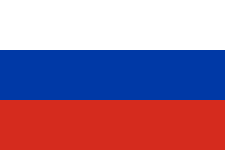According to recent reports by a federal government grain monitoring company, vessel waiting times at the Port of Vancouver, Canada this year are as bad as they’ve ever been.
Government reports reveal that vessels scheduled to haul western Canadian grain to overseas customers waited nine weeks or longer to be loaded earlier this year.
Other ships were partially loaded and then forced to wait for more grain as railways and export terminals matched incoming deliveries with waiting ships.
As a result of an ensuing economic crisis following the fall of the communist political system, Russia has lost millions of acres of farmland and tens of millions of head of annual livestock production.
However, feed conversion rates are soaring as the Russian farm economy restructures from the inefficient collective farm system. Individual family farms are taking over land from former collective farms, as are large corporate farms.
Speaking at the recent Cereals North America - which was held in Winnipeg, Canada at the start of November - Dmitri Rylko, director of leading Russian grain analysis agency IKAR said on-farm production gains, world-class port facilities and general export system improvements are beginning to change the system.
Following on from its recent successes, the International Association of Operative Millers (IAOM) is has announced that it will once again be holding its Fundamentals of Milling courses next year.
Working in partnership with Ocrim’s International School of Milling Technology, IAOM will run two courses next March intended for employees, supervisors and managers closely associated with flour milling plant operations
The Ocrim school and training center, located in the center of Ocrim’s manufacturing workshops in Cremona, Italy allows participants to take advantage of a classroom setting with a nearby lab, as well as a full machine production center. In addition, a small pilot mill is available, all these resources combining to both complement and deepen expertise in mill processing.
Fundamentals of Milling I will run from 17-21 March 2014
Topics:
- general flour milling plant operations including the grain elevator, cleaning, conditioning, milling, packaging and warehouse departments.
- grain cleaning, conditioning and milling equipment role in the milling process and system flow sheets
-other topics include wheat quality characteristics, flour quality specifications and quality measurements.
Fundamentals of Milling II will run from 24-28 March 2014
Topics:
- technical and economic analytical tools for milling process evaluation including product granulation, cumulative ash, step chart development, and flow sheet equipment allocation analysis
-economic tools include yield management, divide milling and the impact of moisture on profitability
-other topics include wheat quality characteristics, cleaning, and conditioning on mill operations; selected roller mill grinding, sifting, and purification variables; and mill balance and troubleshooting.
Registration Fee (includes tuition, laboratory fees, books, special instruction, materials, transportation, and lunch on class days; fees do not include lodging and evening meals)
How much will it cost?
1 Course:
IAOM Members -€1,950
Non-Members €2,050
Both courses:
IAOM Members €3,700
Non-members €3,900
Ocrim has reserved a block of rooms at the Hotel Continental for a special rate of €69/night. This rate includes breakfast. Students will be responsible for their hotel, meals outside of the course, incidentals, and travel to/from Cremona.
 |
| Flag of Russia (Photo credit: Wikipedia) |


No comments:
Post a Comment